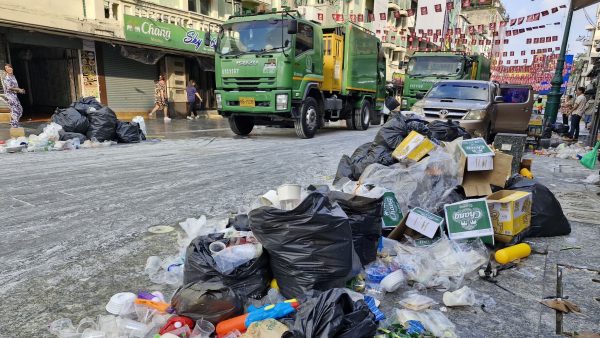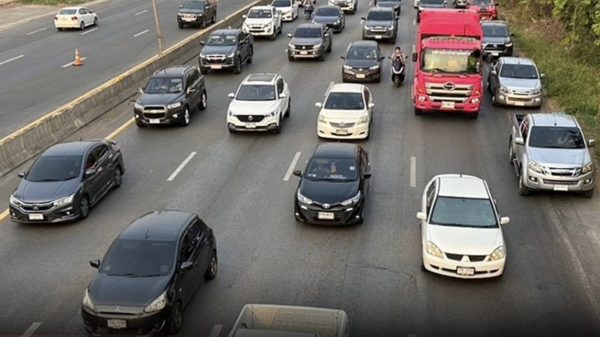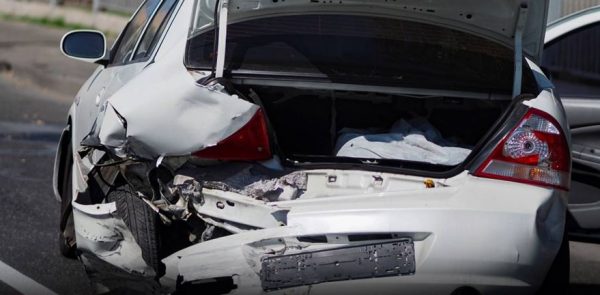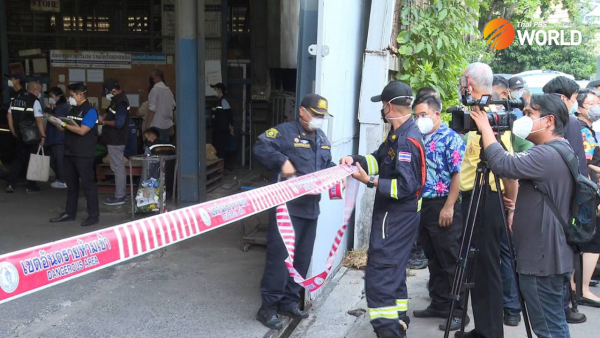Can COVID-19 kick-start long-distance learning?

The debate over when Thailand’s schools should reopen has become highly politicized, but it has also led to an intriguing question of whether Thai students are prepared for an increase in “distance learning”.
The debate was triggered by the Government’s decision to start the new semester on July 1st, giving almost ten million students an extra month of school break, due to the spread of COVID-19.
Nattakorn Devakula, a news presenter on Voice TV, strongly criticized the decision, because the number of daily new infections has been steadily decreasing, according to the Center for COVID-19 Situation Administration (CCSA). He insists that the country’s educational institutions should open sooner.
On May 13th, Thailand reported no infections or fatalities for the first time since the virus got a foothold in the country at the beginning of this year.
Nattakorn said schools in many countries have already reopened, after their governments eased lockdown restrictions. He is adamant that schools in Thailand should reopen on time, especially kindergartens and primary schools.
He believes children should spend as much time as possible involved in group activities, like classes, to develop their social skills. If the schools stay closed, he says their education will not produce fully rounded members of society.
Thailand’s Minister of Education pointed out that the strict anti-viral measures, currently being imposed on all sectors of Thai society, had to be extended by another month and his ministry is trying to provide and improve online education, not just for now, but for the future development of the country post COVID-19.
We have prepared vocational and non-formal education for those who will benefit, including for disabled and disadvantaged children. Our goal is to ensure, no matter what their situation, that every Thai child has ready access to a good quality education, said a deputy permanent secretary of the Ministry of Education.
Meanwhile, some students seem quite relaxed about the postponement of the start of the school semester. Grade 8 student, Phuvarish Mailama, said he is quite happy not to go to school until July 1st, adding “I have more time to chill out at home, which is great!”
What concerns him the most, though, is being required to go back to class, knowing that COVID-19 is still spreading. Phuvarish doesn’t have problem with distance learning, but prefers to go to school because he misses his classmates and teachers.
Like most students from a middle-class family, Phuvarish is fully-equipped for online classes. He said studying at school or at home doesn’t really matter. He just wants to study with his peers.

Not every school has to comply with Ministry of Education’s decision to delay the start of term. International and demonstration schools can set their own dates. Ramkhamhaeng Demonstration School, Elementary level, plans to start the next semester on June 1st. If, by then, the pandemic is under control, students will attend school on alternate days, and complete the assignments on the days they are not at the school.
One big problem with distance learning, however, is that elementary students are too young to be left alone in the house to study, if their parents have to go out to work.
Pamornrat Inthamattayakul worries about this, because her 8 year old daughter is to start Grade 2 next semester. “There are only two of us in our family. Whenever my daughter studies online, I am supposed to stay home with her. I can work from home that day, but I might have to go to the office if I have a meeting. I would have to take her to the office with me” she said.
Pamornrat also noticed that, when her child is in a normal classroom and does not understand something, she would keep quiet rather than ask the teacher. “With online classes, it would be worse. She definitely won’t ask any questions and may be unable to comprehend anything. This is the reason why I have to be with her during the online learning.”

Those who disagree with online learning question its effectiveness. Chananikant Khlibthon, tutor and instructor at King Mongkut’s University of Technology Thonburi, believes that online learning is an ineffective way of teaching, judging by student academic performance. She also says that many parents do not agree with online learning either, because it seems that many students do not understand the lessons as well as they do when they are in the classroom. She estimates that around 80% of the students she knows do not absorb the key points of the lessons.

It is a sad fact that the majority of Thai students perform poorly in most subjects, when compared to their peers in other countries. For instance, in December 2019, the Organisation for Economic Co-operation and Development (OECD) released its 2018 worldwide Programme for International Student Assessment (PISA) ranking.
PISA examinations aim to evaluate educational systems by measuring scholastic performance, in mathematics, science and reading, of 15-year-old pupils, and take place every three years. Thailand still ranks significantly behind most countries participating in the evaluation, coming 60th out of 79 nations. Thai students’ performance is far below the international average in every subject. In math, Thailand ranked 56th, 52nd for science and 66th for reading. The results have showed little improvement since 2015’s ranking, and many people are worried that long-distance learning will make things worse.
The limitations of online learning also worry Assistant Professor Dr. Rattapong Boonyanuwat. He said the preparedness of teachers should be taken into account as well. “Usually, there is a mix of old and young teachers in a school. I am worried about the older teachers, who not familiar with new teaching methods. It is important that schools train teachers first”.
In countries like Denmark and Norway, students have already returned to school. In the UK, Prime Minister Boris Johnson said primary schools in England could reopen, for some year groups, from June 1st at the earliest. Secondary schools, however, are likely to stay closed until September.
In Scotland, the government has been warned that fully reopening primary schools will increase the risk of “overwhelming” the National Health Service (NHS).
Reporting by Shatree Suwanvalaikorn, Kantachat Monkanpai, Kanyanat Techotiussanee, Dolyana Bunnag, Tanadate Tanboriphan, Jeerapa Boonyatus






